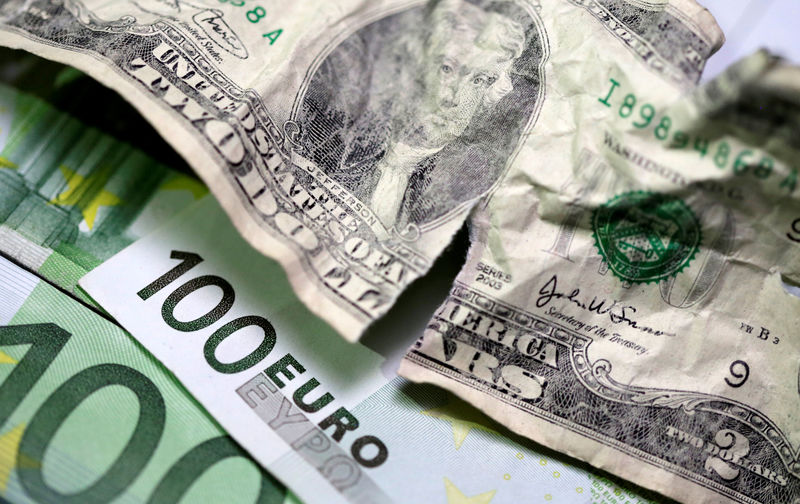By Geoffrey Smith
Investing.com -- The dollar started the week testing a fresh nine-month low as market participants bet on the U.S. Federal Reserve trimming the size of its interest rate hikes for a second straight meeting in February.
Fed officials are entering the 'quiet period' before their policy meeting on February 1st, but a report in The Wall Street Journal over the weekend strengthened expectations that the next move higher will be a modest 25 basis points, rather than the 50 basis points seen at the last meeting.
A spate of weak economic data last week - with notable declines in retail sales and industrial production - gave the impression that the U.S. economy slowed sharply at the year-end, despite continued strength in the labor market. That's likely to be visible in the first reading of U.S. Gross Domestic Product on Thursday, where the QoQ rate of growth is expected to slow to 2.6% from 3.2% in the third quarter.
By 02:55 ET (07:55 GMT), the dollar index which tracks the greenback against a basket of advanced economy currencies was down 0.3% at 101.515, extending its losses from the previous week. It had now unwound virtually all of the gains it made since the Fed started raising interest rates last March.
"The data calendar in theory should keep the dollar on the soft side this week," said ING's Chris Turner in a note to clients. "However, DXY has come quite a long way already and we doubt whether the market is ready to add to short dollar positions ahead of next week's FOMC meeting."
Other currencies whose central banks were slower to start raising rates are, by contrast, outperforming as those institutions still play catch up. The euro rose 0.5% to $1.0913 after a succession of comments at the World Economic Forum from ECB officials insisting that its next rate move will be "significant" - i.e., more than 25 basis points. The market is nonetheless still pricing in a first ECB rate cut by the end of the year.
Likewise, the yen continues to strengthen as the market tests the Bank of Japan's resolve to defend its target for long-term bond yields.
Finance Minister Shun'ichi Suzuki told parliament on Monday that: "Japan's public finances have increased in severity to an unprecedented degree" as it struggles to sustain demand in the aftermath of the pandemic. That's a situation that leaves the government ill-prepared to cope with a rising debt service burden.
Markets are set to be generally quiet on Monday, with the start of the Lunar New Year holiday in China and a dearth of market-moving data elsewhere.
However, two currencies likely to be in focus later will be the Brazilian real and the Argentine peso, after their respective countries began talks on the creation of a common currency. The real, while always volatile, has been a model of stability compared to the peso in recent years.
